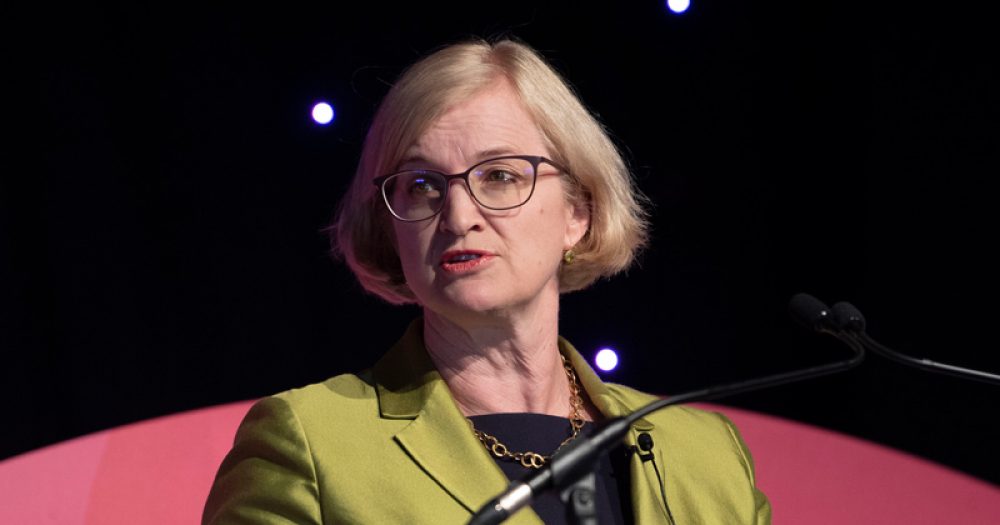Academy bosses will get a seat at the table with Ofsted inspectors as the watchdog moves forward on plans to beef up its inspection of trusts.
The watchdog has completed a series of trials visiting a “small number” of trusts to test a more open approach to inspecting groups of schools in academy chains.
Schools Week understands this involves academy trust leaders now meeting with inspectors to talk about the findings of their batch inspections – where a number of a trust’s schools are all inspected in a few days.
Where it helps the inspectors to talk to MAT leaders to understand the quality of education being provided in a school, then a dialogue will be welcomed
Normally the inspector would just send a letter detailing the findings, but Ofsted hopes the new approach will “improve the inspection experience for trusts leaders, for their academies and for inspectors”.
The move is still some way off Ofsted’s desire to fully inspect actual academy trusts, but seems to be a happy compromise for both the inspectorate and the Department for Education.
Amanda Spielman (pictured), chief inspector of Ofsted, said the aim is for Ofsted to better understand the way trusts are organised and operate, improve its reporting on the impact academy chains are having, and share evidence between inspection teams more effectively.
Ofsted has confirmed to Schools Week that the trials are now completed and outcomes are being analysed to inform guidance on focused reviews of multi-academy trusts, which will be published “in due course”.
Leora Cruddas, chief executive of pro-autonomy group FASNA, said the work was welcome, provided the watchdog stayed focused on the education being provided to pupils.
“Ofsted’s role is to inspect the quality of education in schools,” she said. “Where it helps the inspectors to talk to MAT leaders to understand the quality of education being provided in a school, then a dialogue will be welcomed.
“However, it is important that this is not an attempt to inspect the trust as an entity.”
Spielman told the parliamentary education committee last year that she would welcome powers for the watchdog to inspect trusts in their entirety, rather than just looking at a subset of their schools.
There was resistance to that idea, particularly from the DfE. But in an interview with Schools Week education secretary Damian Hinds said the government is still “looking at the question of assessment of trusts”.
“I’ve said in the past we need to think more broadly about this as a bigger part of the system and it’s right that we do.”
He wouldn’t commit to whether the full inspection of trusts – where inspectors would observe trust executives and scrutinise centralised data – would be introduced but the new approach appears to be a step in that direction.
Hugh Greenway, chief executive of the Elliot Foundation Academies Trust, said it was a positive move that will enable a trust to “bring the context of the challenges they deal with” to the forefront.
He highlighted issues such as size, number and location of a trust’s schools all creating different circumstances that need to be considered.
“I think it will bring transparency and scrutiny and lead to better sharing,” he added. “But the context must be taken into account, not all MATs are created equal.”
An Ofsted spokesperson said the consultation findings will “inform operational guidance about carrying out focused reviews of multi-academy trusts”.







To translate: Academy bosses gain more power to game the system while parents, teachers ad pupils continue to be ignored.
Rachel, what is your point? In any walk of life the Executive leadership engages directly with external audit whether it is financial or quality of process. Just rhetoric methinks.
Michael – My point is the dissembling behind this: “However, it is important that this is not an attempt to inspect the trust as an entity.” It is vitally important that Trusts are inspected as an entity, not just their individual schools.
Dissembling is a new noun to me so cannot really respond to that comment. Clearly a MAT is an entity but it is also analogous to a holding company. A holding company can only be valued by evaluating the separate companies. In terms of public accountability you rightly highlight the importance of parents and pupils. Surely the school that they are involved with is the important thing . If Trusts are inspected as an entity then individual schools should not be inspected which will surely mean direct accountability for the performance of the school will become obscure. Yes Trusts should be very accountable for the performance of the schools they are responsible for and poor performance of individual schools should be dealt with. Inspecting Trusts as an entity will probably lead to more confusion and frustration, if the school your child is the only poor school of twenty in a trust it will get lost. Michelin stars or hygiene inspections apply to the individual restaurant or the individual outlet ; to inspect the larger entity as a whole becomes meaningless for the customer. You argued rightly for the parent and the pupil, the inspection of Trusts as an entity will do little ,if anything ,to help them.
dissemble
dɪˈsɛmb(ə)l/Submit
verb
gerund or present participle: dissembling
conceal or disguise one’s true feelings or beliefs.
“an honest, sincere person with no need to dissemble”